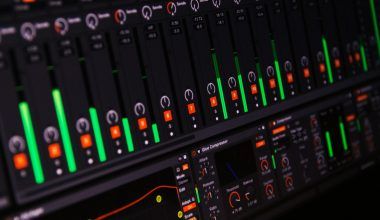Imagine this: you’re in the middle of cooking dinner, your hands are messy, and you suddenly remember a recipe you wanted to try. Instead of scrambling to clean your hands and type in a search query, you simply say it out loud. And just like that, the information you need appears. Welcome to the world of search by audio.
What is Search by Audio?
Search by audio allows you to use your voice to perform searches instead of typing them out. It’s an effortless way to find what you need, whether you’re looking for a nearby café, the answer to a burning question, or directions to a new place. Powered by advanced voice recognition technology, search by audio is designed to make your life easier and more hands-free.
Why is Search by Audio Gaining Popularity?
With the rise of smart devices like smartphones, voice assistants, and smart speakers, audio-based searches are becoming a part of daily life. People love the convenience it brings. It’s quick, simple, and most importantly, it’s accessible. Even if you’re on the go, cooking, driving, or multitasking, search by audio lets you find answers without breaking stride.
How Does Search by Audio Work?
The magic behind search by audio lies in speech recognition technology. When you speak, your device captures your voice and converts it into text. This text is then processed by search engines, which deliver the most relevant results. Over time, machine learning and AI help these systems improve, understanding accents, languages, and even context better.
The Benefits of Search by Audio
Hands-Free Convenience
Imagine being able to search for anything without lifting a finger. Whether you’re working out, cooking, or driving, search by audio keeps your hands free and your focus where it’s needed.
Speed and Efficiency
Speaking is faster than typing. With search by audio, you can ask a question and get results almost instantly. No more fumbling with keyboards or spelling errors—just quick, accurate answers.
Accessibility for All
For people with disabilities or those who struggle with typing, search by audio is a game-changer. It breaks down barriers and makes technology accessible to everyone.
Multitasking Made Easy
Life is busy, and multitasking is often a necessity. Search by audio allows you to juggle multiple tasks while still finding the information you need.
Real-Life Applications of Search by Audio
Smart Assistants
Devices like Alexa, Google Assistant, and Siri have become household staples. They allow you to set reminders, play music, control smart home devices, and yes, search the web—all through audio commands.
Shopping Made Simple
Looking for a new pair of shoes or the perfect gift? Just ask. Many e-commerce platforms now support search by audio, making online shopping faster and easier.
Learning on the Go
Whether you’re curious about a historical fact or need help with a math problem, search by audio turns your voice into a tool for learning.
Need directions? Looking for the nearest gas station? Audio searches make travel seamless, giving you the information you need without taking your eyes off the road.
How to Use Search by Audio Effectively
Be Clear and Concise
When speaking your search query, try to be as clear and direct as possible. This helps the technology understand you better and deliver accurate results.
Use Specific Keywords
Just like typed searches, using the right keywords is important. For example, instead of saying “weather,” say “weather in New York tomorrow.”
Take Advantage of Context
Many voice assistants use contextual awareness. For instance, if you ask, “What’s the weather?” and then say, “What about tomorrow?” the assistant will understand you’re still talking about the weather.
Challenges of Search by Audio
While search by audio is incredibly useful, it’s not without its challenges. Background noise, accents, and unclear speech can sometimes affect accuracy. However, as technology advances, these issues are becoming less common.
The Role of AI and Machine Learning
Artificial intelligence (AI) and machine learning are at the heart of search by audio. They allow devices to learn and adapt, improving their ability to recognize speech patterns, accents, and even different languages. As AI continues to evolve, so will the capabilities of audio search.
The Future of Search by Audio
The future looks bright for audio searches. With continued advancements in AI, voice recognition, and natural language processing, we can expect search by audio to become even more intuitive and accurate. From understanding complex queries to offering more personalized results, the possibilities are endless.
How Businesses Can Leverage Search by Audio
For businesses, search by audio presents a unique opportunity. By optimizing content for voice search, companies can reach a wider audience and stay ahead of the competition. This means focusing on conversational language, long-tail keywords, and answering common questions directly.
Conclusion
Search by audio isn’t just a trend; it’s a shift in how we interact with technology. It’s fast, convenient, and accessible, making it an essential tool in today’s busy world. Whether you’re using it for work, play, or daily errands, search by audio is here to make life easier. So go ahead, speak up—the future of search is listening.
For further reading, explore these related articles:
- Circles Post Malone Lyrics – A Song About Love, Loss, and Life
- Billie Eilish’s Big Moment at the Oscars 2022: A Night to Remember
For additional resources on music marketing and distribution, visit DMT Records Pvt. Ltd..






